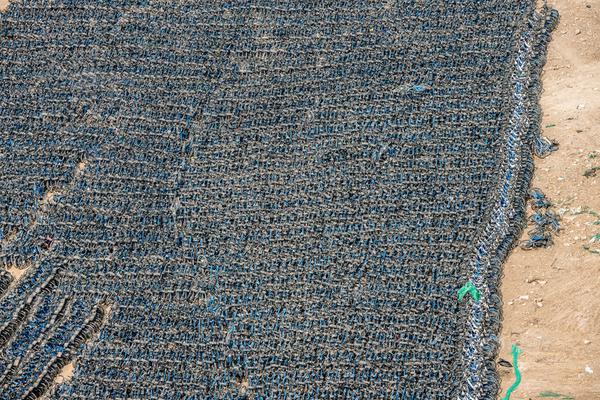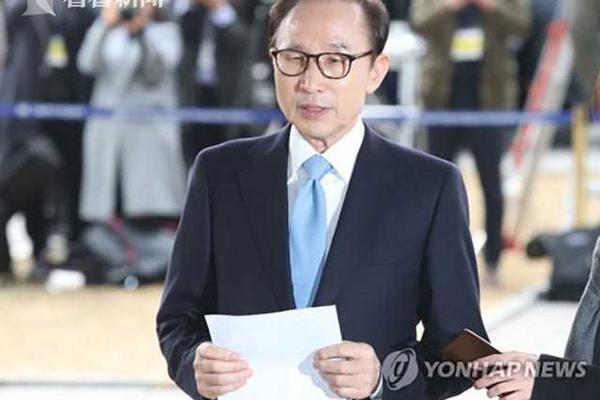
1. The five functions of the operating system are processor management, memory management, device management, file management and job management. Processor management The most basic function of processor management is to process interrupt events. After configuring the operating system, various events can be processed.
2. The main function of the computer operating system is process management, and its work is mainly process scheduling. In the case of a single user and a single taskNext, the processor is only monopolized by one user's task, and the process management work is very simple.
3. Operating System (abbreviation: OS) is a group of interrelated system software programs that supervise and control computer operation, use and run hardware, software resources and provide public services to organize user interaction.
4. Five major management functions of the operating system: (1) Job management: including tasks, interface management, human-computer interaction, graphical interface, voice control and virtual reality, etc. ( 2) File management: also known as information management. ( 3) Storage management: The essence is the management of storage "space", which mainly refers to the management of the main memory.
Any information system has five basic functions, namely: information collection and recording (input); information storage; information processing; information transmission; information output .
According to the functional introduction of the information system, the information system has five basic functions: input, storage, processing, output and control. Different functions have different functions, such as input function: the input function of the information system is determined by the purpose to be achieved by the system, the ability of the system and the permission of the information environment.
Five basic functions of the information system: input, storage, processing, output and control. Input function: The input function of the information system is determined by the purpose to be achieved by the system, the ability of the system and the permission of the information environment.Storage function: Storage function refers to the ability of the system to store various information and data. Mainly including: statistical functions.
The operating system has five functions: processor management: mainly controls and manages the work of the CPU. Storage management: mainly allocate and manage memory. Device management: mainly manage basic input and output devices. File management: responsible for the organization, storage, operation and protection of computer files.
The functions of the computer operating system include: processor management, memory management, device management, file management, job management and other functional modules. Processor management. The most basic function of processor management is to handle interrupt events. The processor can only detect interrupt events and generate interrupts and cannot process them.
The main function of the computer operating system is process management, and its main work is process scheduling. In the case of a single user and a single task, the processor is only monopolized by one user's task, and the work of process management is very simple.
The main functions of the operating system are process and processor management, job management, storage management, device management and file management, as follows: process and processor management. Because the execution of the program must rely on the processor, only one program flow can be processed and executed at any time. Homework management.
I) Processor management The most basic function of processor management is to handle interrupt events. The processor can only detect interrupt events and generate interrupts, and cannot handle these interrupt events. After configuring the operating system, all types of events can be handled.Another function of processor management is processor scheduling.
Five management functions of the operating system: job management: including tasks, interface management, human-computer interaction, graphical interface, voice control and virtual reality, etc. File management: also known as information management. Storage management: The essence is the management of storage "space", which mainly refers to the management of the main memory.

The storage management function of the operating system is to manage memory resources. It mainly realizes memory allocation and recovery, storage protection and memory expansion. The device management of the device management operating system is responsible for allocating and recycling external devices, and controlling external devices to operate according to the requirements of user programs.
The functions of the computer operating system include: processor management, memory management, device management, file management, job management and other functional modules. Processor management. The most basic function of processor management is to handle interrupt events. The processor can only detect interrupt events and generate interrupts and cannot process them.
The five functions of the operating system are processor management, memory management, device management, file management and job management.Processor management The most basic function of processor management is to process interrupt events. After configuring the operating system, various events can be processed.
LR stock price Philippines-APP, download it now, new users will receive a novice gift pack.
1. The five functions of the operating system are processor management, memory management, device management, file management and job management. Processor management The most basic function of processor management is to process interrupt events. After configuring the operating system, various events can be processed.
2. The main function of the computer operating system is process management, and its work is mainly process scheduling. In the case of a single user and a single taskNext, the processor is only monopolized by one user's task, and the process management work is very simple.
3. Operating System (abbreviation: OS) is a group of interrelated system software programs that supervise and control computer operation, use and run hardware, software resources and provide public services to organize user interaction.
4. Five major management functions of the operating system: (1) Job management: including tasks, interface management, human-computer interaction, graphical interface, voice control and virtual reality, etc. ( 2) File management: also known as information management. ( 3) Storage management: The essence is the management of storage "space", which mainly refers to the management of the main memory.
Any information system has five basic functions, namely: information collection and recording (input); information storage; information processing; information transmission; information output .
According to the functional introduction of the information system, the information system has five basic functions: input, storage, processing, output and control. Different functions have different functions, such as input function: the input function of the information system is determined by the purpose to be achieved by the system, the ability of the system and the permission of the information environment.
Five basic functions of the information system: input, storage, processing, output and control. Input function: The input function of the information system is determined by the purpose to be achieved by the system, the ability of the system and the permission of the information environment.Storage function: Storage function refers to the ability of the system to store various information and data. Mainly including: statistical functions.
The operating system has five functions: processor management: mainly controls and manages the work of the CPU. Storage management: mainly allocate and manage memory. Device management: mainly manage basic input and output devices. File management: responsible for the organization, storage, operation and protection of computer files.
The functions of the computer operating system include: processor management, memory management, device management, file management, job management and other functional modules. Processor management. The most basic function of processor management is to handle interrupt events. The processor can only detect interrupt events and generate interrupts and cannot process them.
The main function of the computer operating system is process management, and its main work is process scheduling. In the case of a single user and a single task, the processor is only monopolized by one user's task, and the work of process management is very simple.
The main functions of the operating system are process and processor management, job management, storage management, device management and file management, as follows: process and processor management. Because the execution of the program must rely on the processor, only one program flow can be processed and executed at any time. Homework management.
I) Processor management The most basic function of processor management is to handle interrupt events. The processor can only detect interrupt events and generate interrupts, and cannot handle these interrupt events. After configuring the operating system, all types of events can be handled.Another function of processor management is processor scheduling.
Five management functions of the operating system: job management: including tasks, interface management, human-computer interaction, graphical interface, voice control and virtual reality, etc. File management: also known as information management. Storage management: The essence is the management of storage "space", which mainly refers to the management of the main memory.

The storage management function of the operating system is to manage memory resources. It mainly realizes memory allocation and recovery, storage protection and memory expansion. The device management of the device management operating system is responsible for allocating and recycling external devices, and controlling external devices to operate according to the requirements of user programs.
The functions of the computer operating system include: processor management, memory management, device management, file management, job management and other functional modules. Processor management. The most basic function of processor management is to handle interrupt events. The processor can only detect interrupt events and generate interrupts and cannot process them.
The five functions of the operating system are processor management, memory management, device management, file management and job management.Processor management The most basic function of processor management is to process interrupt events. After configuring the operating system, various events can be processed.
UEFA Champions League standings
author: 2025-01-09 09:49 DigiPlus fair value
DigiPlus fair value
929.73MB
Check Bingo Plus
Bingo Plus
698.48MB
Check Casino Plus login register
Casino Plus login register
351.29MB
Check Hearthstone deck
Hearthstone deck
375.36MB
Check UEFA Champions League standings
UEFA Champions League standings
292.72MB
Check bingo plus update today
bingo plus update today
798.19MB
Check Hearthstone Arena win rate
Hearthstone Arena win rate
132.91MB
Check bingo plus update today Philippines
bingo plus update today Philippines
852.98MB
Check UEFA Champions League
UEFA Champions League
656.53MB
Check UEFA Champions League
UEFA Champions League
559.17MB
Check App to watch Champions League live free
App to watch Champions League live free
197.46MB
Check DigiPlus fair value
DigiPlus fair value
263.85MB
Check 100 free bonus casino no deposit GCash
100 free bonus casino no deposit GCash
128.53MB
Check UEFA Champions League standings
UEFA Champions League standings
997.12MB
Check DigiPlus stock
DigiPlus stock
956.15MB
Check DigiPlus fair value
DigiPlus fair value
163.46MB
Check DigiPlus fair value
DigiPlus fair value
287.15MB
Check UEFA European championship
UEFA European championship
695.67MB
Check Europa League app
Europa League app
798.77MB
Check Europa League app
Europa League app
551.95MB
Check Casino Plus login register
Casino Plus login register
734.39MB
Check Hearthstone Arena Tier List
Hearthstone Arena Tier List
325.51MB
Check European Cup live
European Cup live
112.34MB
Check DigiPlus fair value
DigiPlus fair value
751.49MB
Check Hearthstone arena deck Builder
Hearthstone arena deck Builder
558.73MB
Check DigiPlus stock
DigiPlus stock
849.82MB
Check UEFA Europa League
UEFA Europa League
394.21MB
Check Arena Plus login
Arena Plus login
237.32MB
Check Bingo Plus
Bingo Plus
156.67MB
Check Casino redeem
Casino redeem
343.51MB
Check Champions League
Champions League
552.72MB
Check 100 free bonus casino no deposit GCash
100 free bonus casino no deposit GCash
542.97MB
Check Hearthstone arena
Hearthstone arena
752.61MB
Check TNT Sports
TNT Sports
892.75MB
Check App to watch Champions League live free
App to watch Champions League live free
986.35MB
Check Hearthstone arena
Hearthstone arena
345.45MB
Check
Scan to install
LR stock price Philippines to discover more
Netizen comments More
865 Casino Plus login register
2025-01-09 11:56 recommend
107 UEFA Champions League live streaming free
2025-01-09 11:45 recommend
2217 Bingo Plus stock
2025-01-09 11:35 recommend
2575 UEFA Champions League standings
2025-01-09 10:34 recommend
1027 UEFA Champions League live
2025-01-09 09:59 recommend